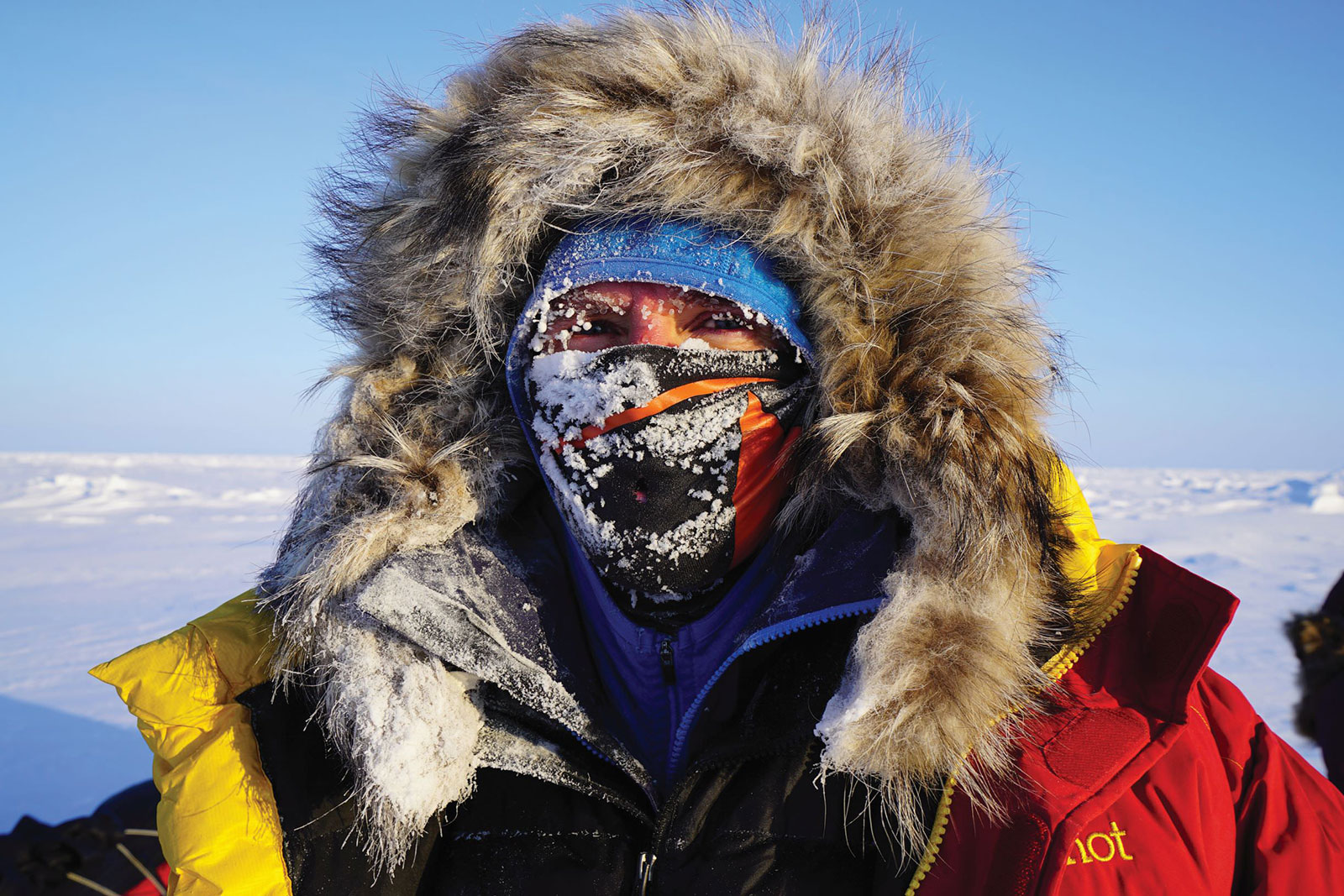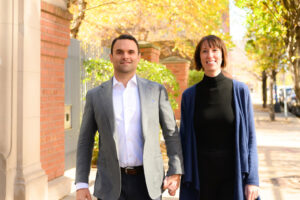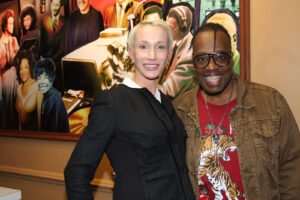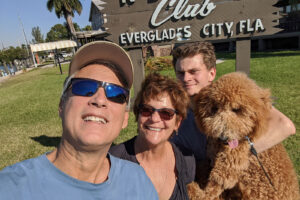“I didn’t go from Jacksonville, Florida, to the top of Mount Everest overnight,” says Sean Swarner, an inspirational speaker, author, and adventurer. No, along the way to the top of that peak and others around the world, Swarner faced something much more dire: cancer. But according to Swarner, who was the first cancer survivor to complete the Explorers Grand Slam (climbing the highest mountain of each continent, plus the North and South Poles), his adventure-seeking feats were no match for the moment he stared down the face of cancer and came out the other side, twice. Now, Swarner’s journey has made it to the small screen in a new documentary, “True North: The Sean Swarner Story,” which explores the importance of living every day as if it is your last.
An innocuous knee injury sustained during a game of basketball landed Swarner in the hospital at the age of 13. When he started exhibiting flu-like symptoms, doctors believed he had pneumonia, but after a round of testing, Swarner was diagnosed with advanced stage IV Hodgkin lymphoma. He was told he had three months to live, but after a year of chemotherapy, Swarner went into remission. However, after around one year in remission, a routine check-up for his lymphoma showed Swarner also had Askin’s sarcoma. This rare form of cancer only affects about three out of every million people, and the prognosis—6 percent—is even grimmer. Doctors gave Swarner 14 days to live, but much like his first diagnosis, Swarner beat the odds. The experiences changed Swarner’s life forever.
“I look back at it as a blessing in disguise, because while my friends were getting ready for school, worrying about the latest shoe styles, the nicest hair, and being popular, trying to impress other people, I was literally fighting for my life and understanding the value of being alive,” Swarner says. After what he admits were “Animal House”-like antics in college to “make up for lost time,” Swarner finally began to think about what cancer meant to him during graduate school in Jacksonville, Florida. In early adulthood, Swarner was intent on forgetting the entire experience, but grad school allowed him a moment to reflect. “I could be a bitter, curmudgeonly person or look at it and say I’ve been blessed with a third life,” he says.
...While my friends were getting ready for school, worrying about the latest shoe styles, the nicest hair, and being popular, trying to impress other people, I was literally fighting for my life and understanding the value of being alive.
That third life has been one adventure after the other. “Cancer didn’t define who I was,” Swarner adds. “Yes, it helped make me the person I am, [but] I could choose how I wanted it to affect me.” Swarner began by making micro-changes throughout the day. For example, he refuses to turn on the television after waking up, because he believes it floods one’s system with negative thoughts and ideas. “I decided a long time ago that consistency is more important than intensity,” Swarner begins. “So if I’m consistent, and I develop these patterns in my life that help me get to where I want to go, that will be much more sustainable than it will be to try and change something overnight.”
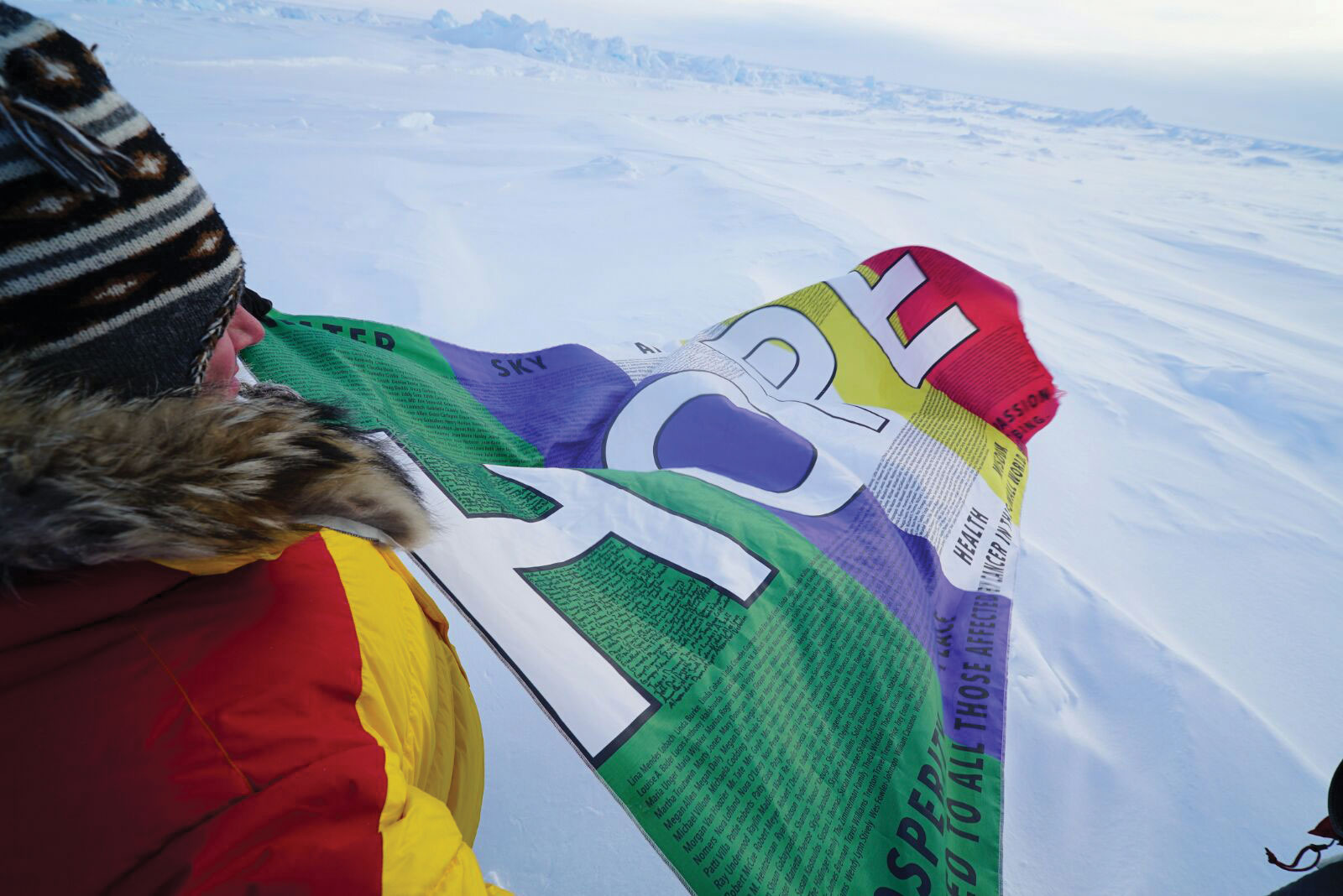
He also found pushing himself outside of his comfort zone was a radical but powerful method of finding his true desires in life. “Just beyond that line of fear is where you really start to live,” he says. “Fear doesn’t do anything but hold you back.” This line of thinking led him to the adventurer life, where he first began by climbing Mount Everest. Later, he tackled the seven summits. For every mountain he climbs, Swarner brings a flag covered with the names of people affected by cancer, people in remission, current fighters, and those who’ve passed away. According to Swarner, climbing a mountain is not just about the personal physical feat. It is also a chance to do something for a larger community that looks up to him. “Every decision I make is based on helping other people who have been touched by cancer,” he says. “I don’t think that will ever leave me.”
Just beyond that line of fear is where you really start to live.
A filmmaker from Philadelphia inspired by Swarner’s story sent a team of two videographers to join Swarner as he completed the Explorers Grand Slam at the North Pole. “I unfurled this flag. I was weeping like a little child,” Swarner adds. And now, after years of merely listening to Swarner recount his adventures, fans can watch his journey—from hospital beds in his adolescence to the North Pole—in “True North: The Sean Swarner Story.”
Since completing the Explorers Grand Slam, Swarner continues to travel the world, giving speeches and visiting local hospitals to bring his story and motivational message to the masses. “I’ve been blessed with a different perspective and a different mentality on life, and I want to suck as much marrow out of life as possible,” Swarner says. “But I want other people to get that same feeling.” For Swarner, the true lessons of his life journey are not about cancer itself but about what happens next. “We’re here for a very short time, and I think some people […] become complacent in their comfort zone,” he says. “I want to push people out of their comfort zone so they can be adventurous, so they can go and climb their own personal Mount Everest.”
“True North: The Sean Swarner Story” is now airing through local PBS stations. To book a screening or to purchase the DVD, visit truenorthdocfilm.com.

